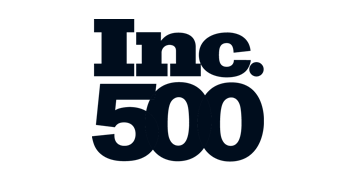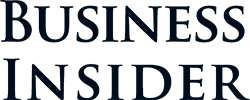















Startup funding can be sourced from various avenues, including business credit cards, personal term loans, and 401(k) accounts.
Business credit cards offer a flexible line of credit that can be used for immediate expenses, often with rewards or cashback benefits. Personal term loans provide a lump sum of money that can be used for larger investments or operational costs, with fixed repayment terms and interest rates. This option can be more predictable but requires a good credit score for favorable terms. Additionally, leveraging a 401(k) through a Rollover for Business Startups (ROBS) allows entrepreneurs to use their retirement savings without incurring early withdrawal penalties or taxes. This method can provide substantial funding but involves complex regulations and potential risks to retirement security. Each of these funding options has its own set of benefits and considerations, making it essential to choose the one that best aligns with your business needs and financial situation.
Scheduling an initial call to discuss the best path for startup funding is a crucial step in ensuring your venture’s success. During this call, we will explore your business goals, current financial status, and funding needs to tailor a strategy that aligns with your vision. This conversation will provide an opportunity to ask questions, gain insights into various funding options, and understand the requirements and expectations of potential lenders. By the end of the call, you will have a clearer roadmap for securing the necessary capital to fuel your startup’s growth and achieve your milestones. To schedule your initial consultation, click the Book Now Button above!
Startup funding is crucial for new businesses, providing the necessary capital for launching and growing, covering essential costs such as hiring, renting, and inventory.

Business credit cards are essential tools for entrepreneurs and small business owners, offering a range of benefits that can significantly enhance financial management and growth potential. These cards provide access to substantial credit lines, often with 0% introductory interest rates for a specified period, allowing businesses to make necessary purchases without immediate financial strain. Additionally, business credit cards typically offer rewards programs, such as cash back, travel points, or other incentives, which can help offset business expenses and contribute to overall savings.
Our partners specialize in acquiring up to $250,000 in 0% interest business credit for our clients, providing a comprehensive “done-for-you” service. Over the past 14 years, they have secured over $1.3 billion in business credit for more than 20,000 businesses across various industries, including real estate, e-commerce, healthcare, and more. Their expertise and dedication have earned them numerous accolades, including an A+ rating from the BBB and a spot on the Inc 5000 list for five consecutive years
Credit Report: Three bureau with fico scores. Learn How!

Our partners specialize in acquiring up to $250,000 in 0% interest business credit for our clients, providing a comprehensive “done-for-you” service.
Personal term loans are a type of installment loan that allows individuals to borrow a fixed amount of money and repay it over a set period, typically ranging from two to seven years. These loans are often used for various purposes, such as consolidating debt, financing home improvements, or covering unexpected expenses. Borrowers receive the loan amount upfront and make monthly payments that include both principal and interest. The interest rates on personal term loans can vary based on the lender, the borrower’s credit score, and the loan term. Choosing the right loan term is crucial, as shorter terms generally result in higher monthly payments but lower overall interest costs, while longer terms offer lower monthly payments but higher total interest. Personal term loans provide a structured and predictable way to manage larger expenses, making them a popular choice for many consumers.

Personal term loans provide a structured and predictable way to manage larger expenses, making them a popular choice for many consumers.
The U.S. Small Business Administration (SBA) offers a variety of loan programs designed to support small businesses in obtaining the funding they need to start, grow, or sustain their operations. SBA loans are not directly issued by the government; instead, they are provided by participating lenders, such as banks and credit unions, with a portion of the loan guaranteed by the SBA. This guarantee reduces the risk for lenders, making it easier for small businesses to qualify for financing. The most common types of SBA loans include the 7(a) Loan Program, which offers flexible funding for various business needs, and the 504 Loan Program, which provides long-term, fixed-rate financing for major fixed assets like real estate and equipment.
One of the key benefits of SBA loans is their competitive terms, which often include lower interest rates and longer repayment periods compared to conventional loans. Additionally, SBA loans may require lower down payments and offer more flexible overhead requirements, making them accessible to a wider range of businesses. These loans can be used for a variety of purposes, including working capital, inventory purchases, equipment acquisition, and refinancing existing debt. To qualify, businesses generally need to meet certain size standards, demonstrate the ability to repay the loan, and have a sound business purpose. Overall, SBA loans are a valuable resource for small businesses seeking to secure the funding necessary for growth and success.

One of the key benefits of SBA loans is their competitive terms, which often include lower interest rates and longer repayment periods compared to conventional loans
If you own an investment property, refinancing a non-owner occupied property can be a strategic move to unlock the equity you’ve built up and secure funds for starting a business. By opting for a cash-out refinance, you can replace your existing mortgage with a new, larger loan, allowing you to access the difference as a lump sum of cash. This approach can provide the necessary capital to cover startup costs, invest in business infrastructure, or manage initial operational expenses. It’s important to note that lenders typically allow you to borrow up to 75-80% of your property’s value, depending on factors such as your creditworthiness and the property’s current market value. This method not only leverages your real estate investment but also helps you diversify your financial portfolio by channeling funds into a new business venture.

Refinancing Real Estate not only leverages your real estate investment but also helps you diversify your financial portfolio by channeling funds into a new business venture.
Equipment financing loans are a popular method for businesses to acquire machinery, vehicles, and technology necessary for their operations without the immediate burden of high upfront costs. Essentially, these loans allow businesses to borrow money specifically for the purchase of equipment, with the equipment itself often serving as collateral. This type of financing is particularly beneficial for small to medium-sized enterprises that need to maintain cash flow while still acquiring the tools essential for growth and productivity. With various terms and interest rates available, businesses can find equipment financing options that align with their financial strategies and repayment capabilities.
In addition to conserving capital, equipment financing loans can offer tax benefits. Many jurisdictions allow businesses to deduct the interest paid on these loans and claim depreciation on the equipment, further easing the financial load. Moreover, by opting for financing, companies can keep their credit lines open for other potential investments or emergencies. This flexibility is crucial in today’s fast-paced business environment, where staying agile and responsive can make all the difference. Equipment financing not only fuels growth but also helps businesses remain competitive by enabling them to adopt the latest technology and maintain operational efficiency.

Equipment financing not only fuels growth but also helps businesses remain competitive by enabling them to adopt the latest technology and maintain operational efficiency.
Business credit cards are essential tools for entrepreneurs and small business owners, offering a range of benefits that can significantly enhance financial management and growth potential. These cards provide access to substantial credit lines, often with 0% introductory interest rates for a specified period, allowing businesses to make necessary purchases without immediate financial strain. Additionally, business credit cards typically offer rewards programs, such as cash back, travel points, or other incentives, which can help offset business expenses and contribute to overall savings.
Our partners specialize in acquiring up to $250,000 in 0% interest business credit for our clients, providing a comprehensive “done-for-you” service. Over the past 14 years, they have secured over $1.3 billion in business credit for more than 20,000 businesses across various industries, including real estate, e-commerce, healthcare, and more. Their expertise and dedication have earned them numerous accolades, including an A+ rating from the BBB and a spot on the Inc 5000 list for five consecutive years
Credit Report: Three bureau with fico scores. Learn How!

Our partners specialize in acquiring up to $250,000 in 0% interest business credit for our clients, providing a comprehensive “done-for-you” service.
Personal term loans are a type of installment loan that allows individuals to borrow a fixed amount of money and repay it over a set period, typically ranging from two to seven years. These loans are often used for various purposes, such as consolidating debt, financing home improvements, or covering unexpected expenses. Borrowers receive the loan amount upfront and make monthly payments that include both principal and interest. The interest rates on personal term loans can vary based on the lender, the borrower’s credit score, and the loan term. Choosing the right loan term is crucial, as shorter terms generally result in higher monthly payments but lower overall interest costs, while longer terms offer lower monthly payments but higher total interest. Personal term loans provide a structured and predictable way to manage larger expenses, making them a popular choice for many consumers.

Personal term loans provide a structured and predictable way to manage larger expenses, making them a popular choice for many consumers.
The U.S. Small Business Administration (SBA) offers a variety of loan programs designed to support small businesses in obtaining the funding they need to start, grow, or sustain their operations. SBA loans are not directly issued by the government; instead, they are provided by participating lenders, such as banks and credit unions, with a portion of the loan guaranteed by the SBA. This guarantee reduces the risk for lenders, making it easier for small businesses to qualify for financing. The most common types of SBA loans include the 7(a) Loan Program, which offers flexible funding for various business needs, and the 504 Loan Program, which provides long-term, fixed-rate financing for major fixed assets like real estate and equipment.
One of the key benefits of SBA loans is their competitive terms, which often include lower interest rates and longer repayment periods compared to conventional loans. Additionally, SBA loans may require lower down payments and offer more flexible overhead requirements, making them accessible to a wider range of businesses. These loans can be used for a variety of purposes, including working capital, inventory purchases, equipment acquisition, and refinancing existing debt. To qualify, businesses generally need to meet certain size standards, demonstrate the ability to repay the loan, and have a sound business purpose. Overall, SBA loans are a valuable resource for small businesses seeking to secure the funding necessary for growth and success.

One of the key benefits of SBA loans is their competitive terms, which often include lower interest rates and longer repayment periods compared to conventional loans
If you own an investment property, refinancing a non-owner occupied property can be a strategic move to unlock the equity you’ve built up and secure funds for starting a business. By opting for a cash-out refinance, you can replace your existing mortgage with a new, larger loan, allowing you to access the difference as a lump sum of cash. This approach can provide the necessary capital to cover startup costs, invest in business infrastructure, or manage initial operational expenses. It’s important to note that lenders typically allow you to borrow up to 75-80% of your property’s value, depending on factors such as your creditworthiness and the property’s current market value. This method not only leverages your real estate investment but also helps you diversify your financial portfolio by channeling funds into a new business venture.

Refinancing Real Estate not only leverages your real estate investment but also helps you diversify your financial portfolio by channeling funds into a new business venture.
Equipment financing loans are a popular method for businesses to acquire machinery, vehicles, and technology necessary for their operations without the immediate burden of high upfront costs. Essentially, these loans allow businesses to borrow money specifically for the purchase of equipment, with the equipment itself often serving as collateral. This type of financing is particularly beneficial for small to medium-sized enterprises that need to maintain cash flow while still acquiring the tools essential for growth and productivity. With various terms and interest rates available, businesses can find equipment financing options that align with their financial strategies and repayment capabilities.
In addition to conserving capital, equipment financing loans can offer tax benefits. Many jurisdictions allow businesses to deduct the interest paid on these loans and claim depreciation on the equipment, further easing the financial load. Moreover, by opting for financing, companies can keep their credit lines open for other potential investments or emergencies. This flexibility is crucial in today’s fast-paced business environment, where staying agile and responsive can make all the difference. Equipment financing not only fuels growth but also helps businesses remain competitive by enabling them to adopt the latest technology and maintain operational efficiency.

Equipment financing not only fuels growth but also helps businesses remain competitive by enabling them to adopt the latest technology and maintain operational efficiency.
*We strive to keep our information current, but the lending landscape changes daily, and requirements can vary between lenders. The information provided is intended as a guideline to begin the approval process. Additional information, documents, and requirements may be needed.





With over 8 years of experience, 950 Credit, Inc. has built a reputation for excellence and reliability in the financial consulting industry. Our team of experts is committed to understanding your unique needs and delivering personalized solutions that drive your business forward.